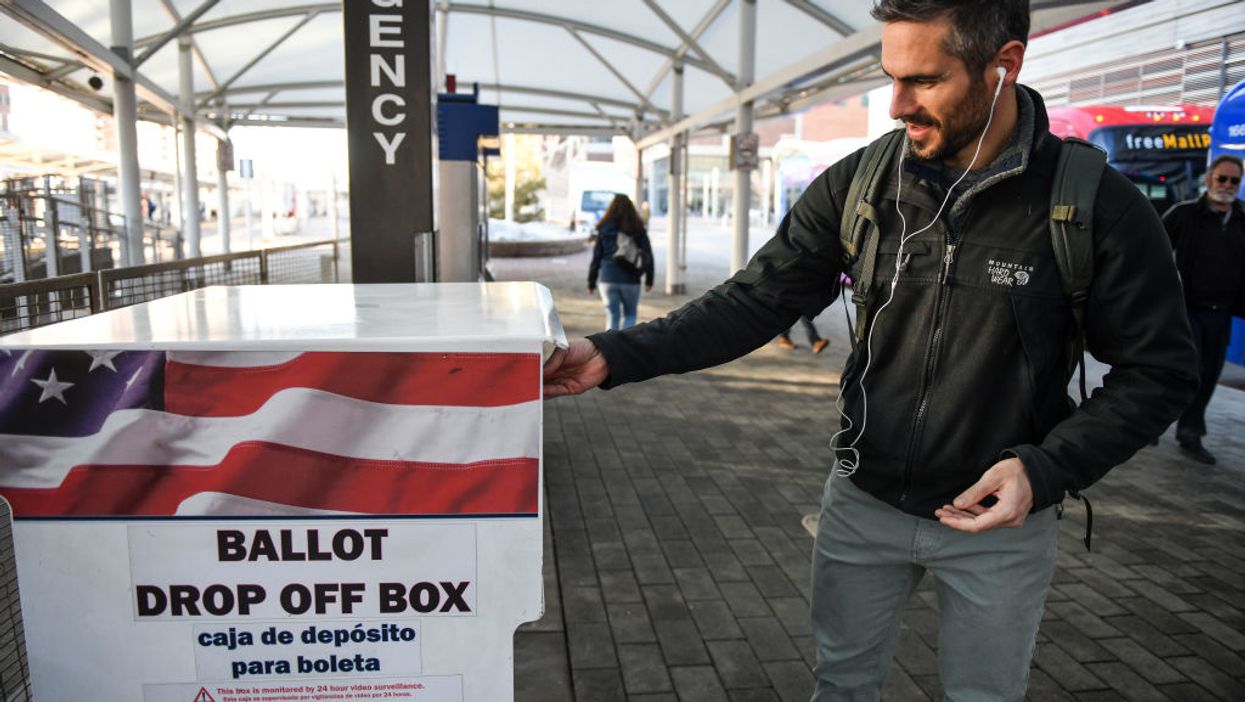Given the myriad differences in election methods across the country, changing the way Americans vote in the time of coronavirus won't be easy. And it wouldn't be cheap, either.
The Brennan Center for Justice on Thursday said it would cost as much as $2 billion to implement the ambitious changes it recommends for a November election in which every voter can vote free of the fear of infection. Expanded online voter registration, a nationwide option to vote by mail and public safeguards at polling places are at the heart of the liberal think tank's detailed plan.
Arranging for everyone to be able to cast a ballot from home is by far the most expensive item, with a price tag between $982 million to $1.4 billion. The breakdown for this includes:
- $413 million to $593 million for postage to mail the ballots to about 155 million registered voters — and the cost of that many postage-paid return envelopes.
- $127 million to $164 million to install and operate drop boxes where people could deposit ballots if they wait until the last minute or don't trust the mail.
- $120 million to $240 million to buy equipment to manage the increase in absentee ballots — including signature verification technology, high-volume sorting machines and high-speed ballot scanners.
- $165 million for the additional people states and counties would have to hire to run that equipment and otherwise sort and count all the ballots.
- $92 million for election officials to rent extra space for storing and then processing the incoming ocean of paper.
- $54 million to $89 million to print the ballots and return envelopes.
Since millions of people will still want to vote in person, the Brennan Center says, $271 million will be needed to ensure that polling places meet health standards, increase the number of poll workers and expand the days that polling sites are open.
Responding to the Covid-19 pandemic, which could require all Americans to avoid most public gathering places for months, will also require $86 million for an expansion of online voter registration in states where the rules now compel people to appear in person at a government office, especially close to Election Day.
Communicating all of these changes to an already stressed and confused public is the last major element in the Brennan Center proposal. An estimated $252 million would be spent on voter education campaigns to let people know about the mail-in voting options and the expanded online voter registration opportunities.
Legislation introduced in the Senate this week by Democrats Amy Klobuchar of Minnesota and Ron Wyden of Oregon includes many of the ideas the Brennan Center recommends. It is an opening bid by the senators, who are hoping to secure bipartisan support for including in the $1 trillion coronavirus economic stimulus package a generous federal subsidy for easing the health concerns about voting this year — principally by boosting the use of mail-in ballots.
It requires that the federal government reimburse states for the costs of implementing these changes, such as providing free postage for absentee ballots. But it does not provide an estimate of how much that reimbursement might total.
The only dollar figure in the legislation is $3 million that would be directed to the Election Assistance Commission to allow it to help administer the voting system changes.





















Why does the Trump family always get a pass?